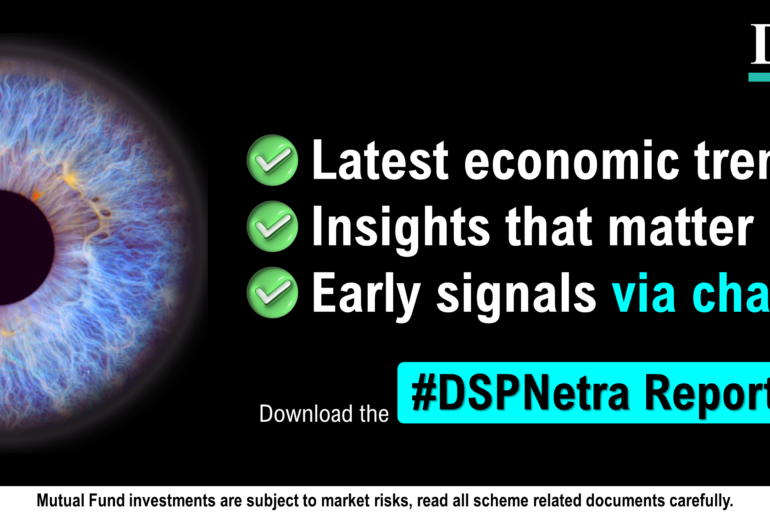Last Updated on May 29, 2023 by Anjali Chourasiya
Changes in the Finance Bill passed in the parliament caused quite some outrage, first by opposition leaders and then by investors and experts. The big change? Removal of tax advantage on debt mutual funds, made on or after 1st April 2023.
Indexation benefits on Long Term Capital Gains (LTCG) tax on debt mutual funds were eliminated. This move had several industry experts call out the beginning of the death of debt mutual funds. But is it really as big a dent as people have made it seem? Not really!
Before we get into details, let’s address the elephant in the room – indexation!
Table of Contents
What is indexation?
The aim of indexation is to not ignore the adverse effects of inflation. Say you bought an asset at 100, and 10 yrs later, its value goes up to 1,000. However, the price has increased because of general inflation and because of other reasons.
The argument in favour of indexation is – why should you pay taxes on the rise that has been because of inflation? So you remove the inflation component, check what the capital gain is, and pay tax on the capital gains minus inflation.
For debt mutual funds, the calculation of LTCG would be made by adjusting the cost of acquisition by indexing it to the Cost Inflation Index (CII). Thereby, the capital gains would turn out to be lower, and the tax payable would reduce.
This was a major magnet for investors looking to invest in debt instruments, as lower taxes would increase the overall return made. The removal of indexation benefits will have an impact on how investors assess expected returns while investing in debt mutual funds.
What’s the damage?
Post the amendment, gains on debt mutual funds will be taxed at the individual’s marginal tax rate, versus earlier, where gains were taxed at 20%, with indexation benefits. How much of a difference does it make? A LOT!
Let’s take an example of a debt mutual fund bought in FY15 and sold in FY22 for someone in the highest tax bracket, not for being elitist but for demonstrating where it hits the most!
| Before | After | |
| Buying cost | 10,00,000 | 10,00,000 |
| Selling price | 18,00,000 | 18,00,000 |
| Indexed cost | 10,00,000 * (317/240) = 13,20,833 | NA |
| LTCG | 18,00,000 – 13,20,833 = 4,79,167 | 18,00,000 – 10,00,000 = 8,00,000 |
| Tax | 20% * 4,79,167 = 95,833 | 30% * 8,00,000 = 2,40,000 |
| Post-tax return | 70% | 56% |
How will people react?
1. Short-term investors: Just for better tax benefits, people were incentivized to hold on to their debt mutual funds for at least 3 yrs. If they did sell before 3 yrs, short-term capital gains would apply, which were taxed at the applicable rate on income. However, the amendments are likely to push people to consider exiting their investments at any moment after achieving capital gains.
2. Long-term investors: For serious long-term debt investors, there will now be a debate between debt mutual funds and fixed deposits. While debt funds had a tax advantage earlier, now, from a tax standpoint, both debt mutual funds and FDs are now at par. Decision-making will hence now boil down to a simple consideration of risk. Those willing to take on interest rate risk for higher returns will opt for debt mutual funds, and those who like the safety of FDs will opt for those.
3. Very long-term investors: Investors with a very long-term time horizon and those in the highest tax brackets might just consider shifting to equity funds. After all, funds allocating towards sovereign gold bonds, bank fixed deposits, and non-convertible debentures are all in the debt category now.
Bye-bye, debt mutual funds?
Several investors are likely to step out of debt mutual funds or even avoid them because of the new tax changes. But debt mutual funds are here to stay and continue to remain worth investing in for multiple reasons:
1. Importance of tax – Tax is an important consideration in making investment decisions, but it shouldn’t be the sole criterion. While tax advantages have been taken away from debt mutual funds, investors can now peg them with comparable instruments purely basis risk appetite, which is a much cleaner methodology.
2. Government intent – The government’s move against debt mutual funds appears to be solely from the objective of reducing arbitrage. The thought process seems to be aligned with the belief that instruments in the same category should be taxed similarly. This is also seen in larger government actions, where the tax policy is evolving and taking a more basic, consistent, and no-frills form. In short, the government is in no way signalling anything against debt mutual funds.
3. Mutual funds sahi hai – Debt mutual funds will continue having their advantages in the form of professional management, regulatory oversight, prudent disclosures, liquidity, diversification, and a plethora of options to suit various investor needs (liquidity, duration, and credit risk), and ease of entry and exit.
What to do now?
Investments made before 31st March 2023, anyway, remain unaffected, and it’s hence best to avoid premature redemption just as a reaction to the tax change.
For new investments, rather than making tax pivotal to decision-making, investors should consider prioritising determining asset allocation basis their risk profile, financial goals, cash flow requirements, and overall investment objectives.
After all, the choice of investing in a certain instrument mustn’t be made solely basis of external circumstances or the noise created around events. Tax advantages or not, a suited investment option will continue to remain so if it fits well!



